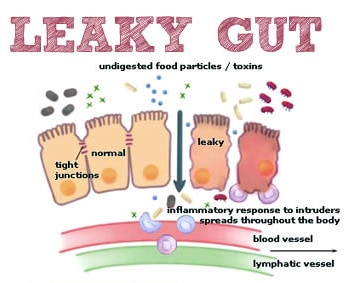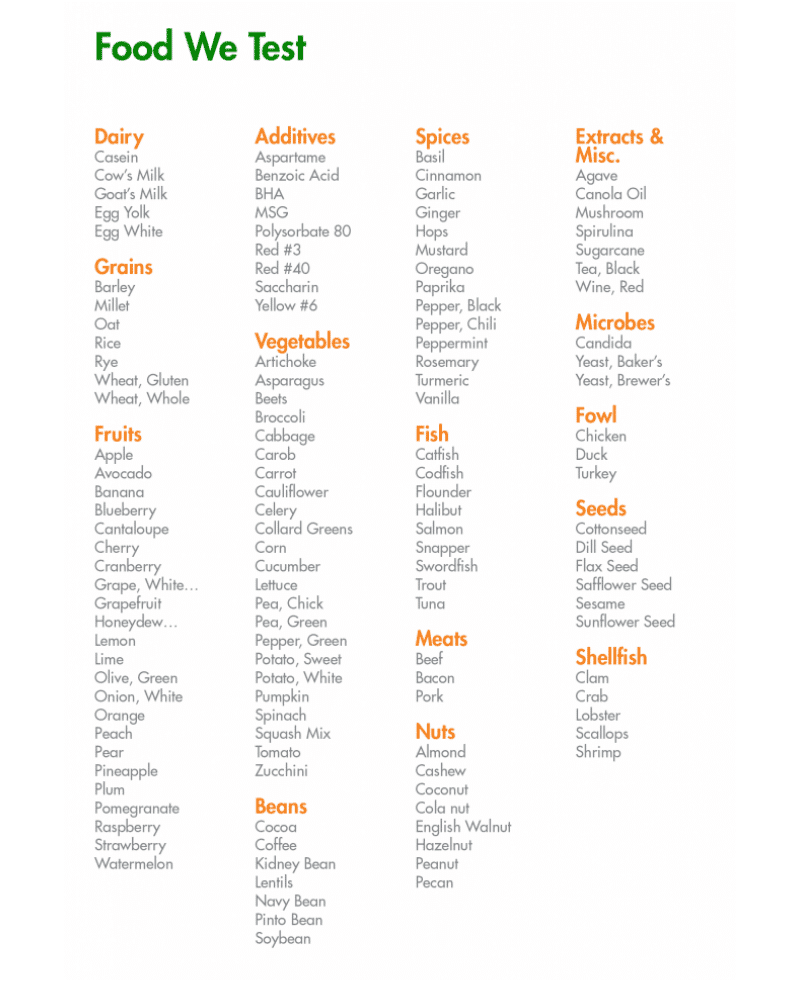One of the primary tenants of Functional Medicine is to identify triggers for inflammation and reduce exposure. Sometimes, this looks like parasites or yeast overgrowth, sometimes it looks like an imbalance in amounts of Omega 6 to Omega 3 in the diet. And other times, this has to do with otherwise healthy, everyday foods that we eat, that simply aren’t a good fit for us at the time.
In theory, this should be simple. But historically, identifying food sensitivities accurately has been a challenge. Hundreds of tests exist for evaluating your immune systems reactions to food. But it has been shown time and time again that many of these tests are inaccurate, either under diagnosing, or over-reporting sensitive foods.
This makes it really difficult to know what to eat and what to leave behind. When a client’s test comes back with 30 reactive foods, it just leads to overwhelm for both the patient and the practitioner.
If your immune system is our planet, then your gut is like the water. Everything that you feed or put into the water is going to circulate, universally, affecting everything else on that planet. The air, the soil, the vitality of anything that grows. Knowing the foods that trigger decay and disease on your planet is essential to the overall health and vibrancy of your body.
You have far greater quantities of gut immune molecules, than you do in the entire rest of your body. Your gut immunity “scans” more in one day than is scanned by the systemic immune system in a lifetime!! Gut issues are so important to overall health, for this reason.
The truth is that food sensitivities are an underlying problem for every condition that I see.
And I mean everything:
- Arthritis
- Weight Gain
- Insulin Resistance
- Eczema, acne, and other skin conditions
- Fatigue
- Reproductive Hormone imbalance (PMS, PCOS, Menopausal symptoms)
- Infertility or recurrent miscarriage
- Autoimmunity of any kind
- Thyroid imbalances
- Adrenal issues
- Migraines
- Digestive issues ranging from IBS to Chrons or Ulcerative Colitis
- Depression, anxiety, insomnia, and brain fog
- and even addiction
Basically, any health concern where having increased inflammation would worsen symptoms or the disease process, can be worsened by exposure to foods that trigger your immune system. And inflammation is the bottom line in the vast majority of illness!
Even without illness or symptoms, anyone looking to live a long healthy life should run this panel, to prevent the development health issues later! I’m so excited to announce that it’s never been an easier or more reliable process to learn which foods are triggers for YOU! The FIT (Food Inflammation Test) by KMBO Diagnostics is cutting-edge lab testing that provides anyone who wants to rid their body of inflammation the information they need to avoid the foods that cause it! (***cut here for email, “read more”)
So, if it’s not an “allergy” what exactly is Food Intolerance or Sensitivity?
Hold up—let’s break this down a bit.
A whopping 85-90{0ace9f30246476cbe34912402cc70dd667071e9efa13e47cc458477e17894418} of our total immunity resides in the gut. There are several potential ways that you can have an immune reaction to a food. When we talk about Food “Allergy” and Food “Intolerances” or “Sensitivities”, these are very different things.
Our immune system is our bodyguard, working to protect us from “invaders” (like viruses and bacteria) that can cause us harm, 24/7. It works by tagging identifying proteins on the surface of the “invader” to mark it as a “bad guy” that should be attacked and eliminated.
Most of the time, this helps us. However, our immune system can also tag pollens, mold, toxins or chemicals, and other things we are exposed to. In the case of food allergies and sensitivities, a specific type of immune compound overreacts to the presence of a protein marker on the surface of a food molecule. The type of reaction is determined ultimately by type of immune compound that is doing the attacking in each reaction.
In a true food allergy, an immune compound called Immunoglobulin E (IgE) over-reacts to a certain food and causes a reaction within minutes or seconds. You can think of immunoglobulins like soldiers enlisted in our own personal immune army. Substances like egg, corn, or apples are normally harmless or healthy, but if you have an allergy, your body sees the food as a threatening invader!
In mild reactions, we might get histamine-driven symptoms like sneezing, runny nose, or itching, like with seasonal allergies. In a more aggressive reaction, you can develop hives, swelling, and even go into anaphylactic shock, which can be life threatening.
IgG is another type of immunoglobulin. IgG is produced by cells in the gut, in response to protein markers on substances like foods and bacteria. While IgE causes reactions within minutes, IgG causes reactions in 2 hours to 4 days or more!
Unlike true food allergy (IgE), IgG reactions are responsible for most of the symptoms that we associate with being “intolerant” or “sensitive” to a food. While the symptoms from an IgG response typically won’t include risk of death, they can still be uncomfortable and dangerous. For this reason, food intolerances are often dismissed as less significant, but in truth they can have serious consequences, especially with regard to your long-term health!
Food Sensitivity, leaky gut, and symptoms outside of the gut:
Logically, food intolerances can cause digestive symptoms. But how do these reactions cause symptoms all over the body like headaches or acne? If you have some degree of Leaky Gut, your immune system can react to the given food protein, forming immune-antigen complexes. When food proteins get through the gut lining, (through structures known as “tight junctions” in the intestinal wall), the resulting inflammation and immune activation causes further break down of the gut barrier. This in turn causes more leaky gut, and allows more food proteins in, creating a vicious cycle or increasing gut permeability and worsening food intolerances.

The over-activated immune system attacks local sites in the gut, but can also circulate in your bloodstream to tissues in distant locations around the body, such as joints, skin, your thyroid, or neurological tissue. Virtually any tissue in the body can be effected.
IgG-mediated symptoms can show up from 4 hours to 4 days after exposure to the reactive food. Clearly, this makes it difficult to identify what food caused what symptom!
Enter the FIT test!
The KBMO Fit Test is a revolution in food sensitivity testing. Like its ancestors, it still tests for IgG reactions to 132 different foods.

So, what’s so different and great about this test?
The main advantage that the FIT test offers, is that it screens for IgG types 1-4 (most IgG testing only looks at 1-2 types), and more importantly, screens for something called “complement”. When it comes to generating inflammation, complement is even more important than the level of IgG response to a food.
Let’s say that the initial IgG reaction is like the fire alarm going off at the fire station, and the first responders showing up at the scene. Compliment is like the rest of the squad showing up to help handle the situation…..they show up a bit later, but often create much larger hubbub at the scene of the accident or fire. The alarm (IgG) had to sound in the first place, to trigger the chain of events, but the responding teams (complement) were really what caused the biggest stir in the end. Foods that activate compliment can cause both local and systemic destruction of tissue by increasing inflammation.
In other words, you might have 10 or more foods with a significant IgG reaction, but the ones with complement are the ones that are significant in terms of boosting your inflammatory response. Knowing this information confirms which foods are most important to eliminate, instead of having a list of 40 foods to avoid! No other food sensitivity test currently available screens for IgG 1-4 and complement levels.
But there’s more…how the FIT Test can confirm if you have leaky gut
The FIT test is also a test for leaky gut, so you don’t need second test! If you show up as having a positive Candida antibody, it doesn’t mean that you have candida overgrowth. Candida is present in everyone’s gut, in low levels. A positive reaction to candida means that it is getting through the gut barrier, where it can present to your immune system. This confirms the presence of a leaky gut. The higher the reaction level, generally the worse the leaky gut. Having a high number of food reactions show positive (20 or more) also suggests leaky gut.
The best part is that this test is a blood spot panel. This means that we can mail it to you to do in the comfort of your own home– no blood draw needed! Based on your results, we design a 6-12 week elimination of your trigger foods, and then a systematic reintroduction to check for reactions. In most cases, antibody production in response to a given food will decrease or be eliminated within that time. When that happens, you may be able to reintroduce the food again without symptoms.
At the Reverse-Age Method, we believe in a holistic approach to perimenopause and beyond, that addresses the root causes of your symptoms (like insomnia, hot flashes, night sweats, erratic periods, fatigue, skin aging, weight gain, and brain fog)– to also slow the pace that your cells are aging. Whether it’s improving gut health, optimizing detox function, enhancing mitochondrial function, or building muscle mass, our comprehensive program has got you covered.
If you’re new here, be sure to check out our Blog Page for more insights and tips on how to thrive during perimenopause. Our blog is packed with practical advice, success stories, and the latest research to help you on your journey.
For more updates and community support, follow us on social media:
You May Also Like...
Eat What You Love Again This Holiday Season and Beyond
Everyone is gathered around the holiday table eating pumpkin pie. But not you. You know how you’ll feel after eating…
Veggie Smoothie Recipe
Smoothies make for an easy way to start the day but if you throw in a few cups of tropical fruit and some juice….and…
Whether you’re looking for help with your gut, your hormones, or both, our team of practitioners work together to treat the WHOLE you – guiding you to a healthier mind, body, and spirit day by day.



